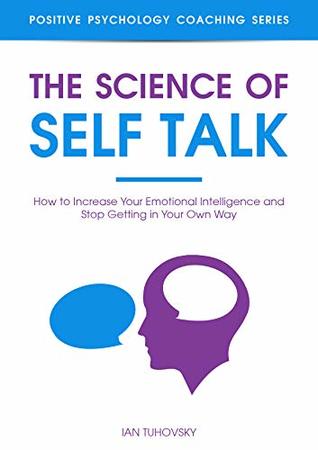More on this book
Community
Kindle Notes & Highlights
by
Ian Tuhovsky
Read between
May 20 - May 22, 2020
So a constructive kind of self-talk would be any kind of self-talk that leads you in the right direction, toward your goals and toward becoming a better you.
Learned helplessness makes you neglect the things in your life that you need to change.
It’s no good to avoid challenges altogether, because then you’re basically just a baby. You’re not a fully formed human being because you’re just living for momentary pleasures and short-term rewards. Two-year-olds do that.
Self-leadership is pretty much the same as the self-agency we talked about earlier: taking authorship of yourself and your life.
Whereas managers with negative self-talk saw problems as worrisome obstacles, those with positive self-talk saw them as challenges that contained opportunities.
In personal development also, progress occurs in plateaus and steep rises. You have to go through the accumulation
period before you experience the uptrend. Eighty percent of people will give up during this stage because there’s no visible progress. Without something to show for your efforts, it’s easy succumb to doubt and just throw in the towel.
But twenty percent of people will persist through the accumulation phase with a stubborn determination. In the long run, the efforts of determined, disciplined people pay off big time.
So, a strong motivation can become weak if you start to think you’re not getting anywhere with your efforts.
So the strength of motivation has a lot to do with the expectation of reward but not always.
You have to have unassailable fortitude to keep up your motivation under such circumstances. So,
Select your social environment so that it will be maximally motivating.
I am large. I contain multitudes.
Other studies showed that non-first-person self-talk allows you to view future stressful situations not as threats, but as challenges that you feel capable of meeting.[21]
it’s not always healthy to keep the focus inside yourself.
Remember that Nassim Taleb quote from earlier? “A loser is someone who, after making a mistake, doesn’t introspect, doesn’t exploit it, feels embarrassed and defensive rather than enriched with a new piece of information, and tries to explain why he made the mistake rather than moving on.”
Look at them as important feedback from your environment.
Self-talk can help you with your goals, but it will be a lot easier to work on your self-talk if you set up the right kind of incentives in your environment.
You need a certain amount of confidence and motivation to change, which you won’t have if you’re stuck in the vicious cycle of feeling lousy about yourself.


